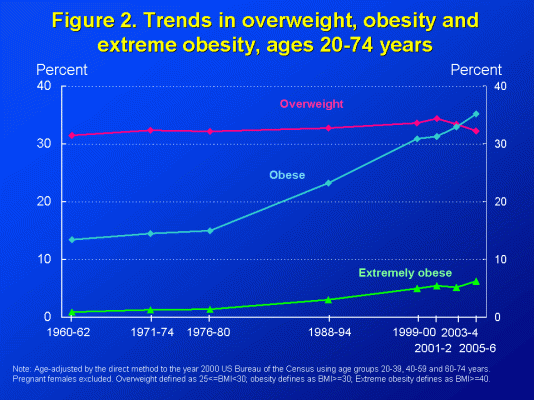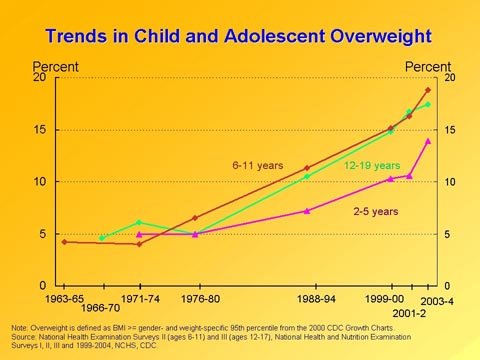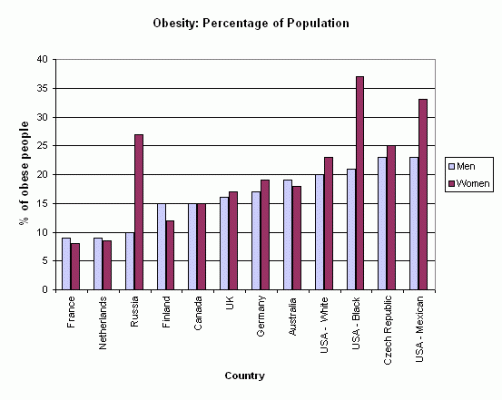Midpack
Give me a museum and I'll fill it. (Picasso) Give me a forum ...
Though I'm not a big fan of articles on yahoo!finance, this blurb made me think and I haven't yet decided what to make of it. I know obesity/overweight is a health care cost if not a quality of life issue, and I'm concerned for the selfish reason that I know it can only increase the cost of health care for all of us, healthy or obese. I also know there are incentives in place that distort the relative costs of various foods, but I just don't want to believe people are that sheeplike...
Lessons from the evolution of smoking over the past 60 years may apply.
Whether or not culture has had an influence I don't know.
Lessons from the evolution of smoking over the past 60 years may apply.
Whether or not culture has had an influence I don't know.
Why WeOne of the arguments she makes focuses on the impact Wall Street has made on food companies and ultimately what people consume. Obesity rates started to rise in the 1980s, largely because of demands Wall Street placed on food makers.
Wall Street "forced food companies to try and sell food in an extremely competitive environment," she says. Food manufacturers "had to look for ways to get people to buy more food. And they were really good at it. I blame Wall Street for insisting that corporations have to grow their profits every 90 days."
Traders and analysts may have shifted food companies' focus to producing profits over health, but changes to government policy also contributed to people's relationship with food, she notes. Large government subsidizes given to the corn, wheat, soybean and sugar industries allowed farmers to reap high returns on their crops. Farmers could grow these commodities cheaply and were encouraged by the food industry "to plant as much as they could. Food production increased, and so did calories in the food supply."
Inexpensive food encouraged more eating, and more eating led to bigger waistlines. "Today, in contrast to the early 1980s, it is socially acceptable to eat in more places, more frequently and in larger amounts, and for children to regularly consume fast foods, snacks and sodas."
Last edited:



